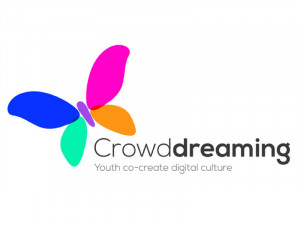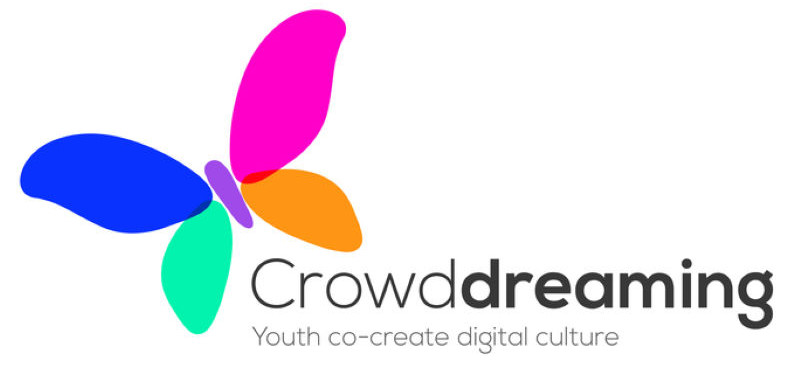 The DAISSy Research Group of the Hellenic Open University (HOU), succesfuly organised the multiplier event entitled “Enhancing teachers’ digital skills and creativity”, in the context of the Erasmus+ project “CrowdDreaming – Youth co-create digital culture”. The event took place online, due to the COVID-19 restrictions, on the 14th April 2021. More than 50 representatives of educational, cultural and policy making sectors in Greece participated in the event which was organised by the Greek project partner.
The DAISSy Research Group of the Hellenic Open University (HOU), succesfuly organised the multiplier event entitled “Enhancing teachers’ digital skills and creativity”, in the context of the Erasmus+ project “CrowdDreaming – Youth co-create digital culture”. The event took place online, due to the COVID-19 restrictions, on the 14th April 2021. More than 50 representatives of educational, cultural and policy making sectors in Greece participated in the event which was organised by the Greek project partner.
Professor Achilles Kameas, Director of the DAISSy Research Group and Scientific Coordinator of the CrowdDreaming in Greece, opened the event with a short greeting, briefly presenting the objectives and an overview of the results of the project as well as an overview of the activities and European cofunded projects of DAISSy while emphasizing on the ones relevent to the enhancement of digital skills and creativity, and addressed the importance of supporting the educational community.
Following, Ms. Elena Sarli, Promoter of European Programmes at the Regional Directorate of Primary and Secondary Education of Western Greece, presented the active role of the Regional Directorate in terms of information, dissemination and promotion for all European projects, like CrowdDreaming, that aim to innovative educational practices, and highlighted the importance of CrowdDreaming for the educational community and for the promotion of digital cultural heritage among them.
The scope, the methodology and the impact of the project were presented by Ms. Eleni Georgakakou, Project Manager of CrowdDreaming on behalf of DAISSy in Greece. Ms Georgakakou highlighted that the project applied the good Italian practice of the “Art of CrowdDreaming” with aim to encourage young people to reflect and valorize their own cultural heritage and develop digital thanksgiving scenes to acknowledge another nation’s contribution to the European culture. She also noted that in Greece, 21 teachers, together with their students, were enthusiasticly involved in all piloting phases of the project, despite the restrictive measures and unforseen challenges due to the COVID-19 pandemic. They researched the cultural contributions of other European nations to the Greek cultural heritage, learned about new digital tools and created digital scenes for the the virtual monument Europa Square.
Two participant teachers, Ms. Zeta Tsiga and Ms. Niki Efstathopoulou, shared their overall experience from the project, the workshops with their students as well as the story behind the digital scenes they created. How did this project affect them and their students? They realised that digital media can promote values and concepts such as multiculturalism, inclusion, critical thinking, co-creation, sustainable preservation of cultural heritage. Above all, a group of people together as a Connective Mind, can Dreamscape the Future, and thus create History.
At the last part of the event, two very interesting presentations of relevant European projects targeting the educational community with an aim, like CrowdDreaming, to enhance their digital skills and/ or creativity took place. Professor Achilles Kameas presented the project “STEAMonEDU”, which aims to the up-skilling of STE(A)M educators through online tools and a very active community of practice, and Ms. Katerina Nikolakopoulou, Coordinator of Educational Activities in the Regional Centre for Educational Planning of Western Greece, presented the project “Creative Audiovisual Lab for the promotion of critical thinking and media literacy-CrAL”, which exploits audiovisual creative writing and reading towards the promotion of students’ critical thinking and media literacy.
The event closed with a short “thanksgiving” session by the event Moderator and CrowdDreaming project Manager in Greece, Ms. Georgakakou, addressed to all partners, tutors, teachers and students for their great work and cooperation, and to the participants of the event.

